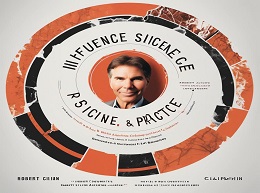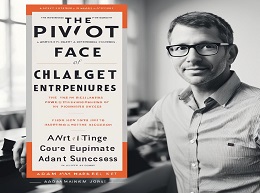Influence: Science and Practice

"Influence: Science and Practice" by Robert Cialdini delves into the intricacies of human behavior and the psychology of persuasion. In this comprehensive review, we'll uncover the key principles of influence, share compelling examples, and provide actionable strategies to help readers harness the power of persuasion in their personal and professional lives.
The Power of Influence:
Cialdini introduces readers to the fascinating world of influence and persuasion, highlighting its pervasive presence in everyday interactions and decision-making processes.
Example:
The story of a renowned salesperson utilizing the principles of influence to close deals and build lasting relationships underscores the transformative impact of understanding and applying persuasive techniques.
Reciprocity: The Rule of Give and Take:
The principle of reciprocity suggests that people feel obligated to reciprocate favors or gestures, leading to a sense of indebtedness and increased compliance.
Example:
A restaurant offering complimentary samples of their signature dish to patrons prompts them to reciprocate by ordering a full meal, illustrating how the rule of reciprocity can influence consumer behavior.
Commitment and Consistency:
Cialdini explores how individuals strive to maintain consistency in their beliefs and actions, making them more likely to follow through on commitments and requests.
Example:
A charity organization leveraging the foot-in-the-door technique by asking individuals to sign a petition before requesting a donation demonstrates the power of commitment and consistency in increasing compliance.
Social Proof: Leveraging the Power of Social Influence:
The principle of social proof suggests that people look to others' actions and behaviors for guidance in uncertain situations, leading to conformity and compliance.
Example:
The phenomenon of crowded restaurants attracting more customers due to the perception of popularity highlights the influence of social proof on consumer decision-making.
Authority: The Influence of Expertise and Status:
Cialdini discusses how individuals are more likely to comply with requests from authoritative figures or those perceived as experts in their field.
Example:
A doctor recommending a particular medication to a patient is more persuasive due to their perceived authority and expertise in the medical field, influencing the patient's decision to follow the prescription.
"Influence: Science and Practice" offers invaluable insights into the psychology of persuasion, empowering readers to navigate social interactions, marketing efforts, and negotiations with greater effectiveness. By understanding the principles of influence and applying them ethically, individuals can enhance their persuasive abilities and achieve desired outcomes in various aspects of life.













